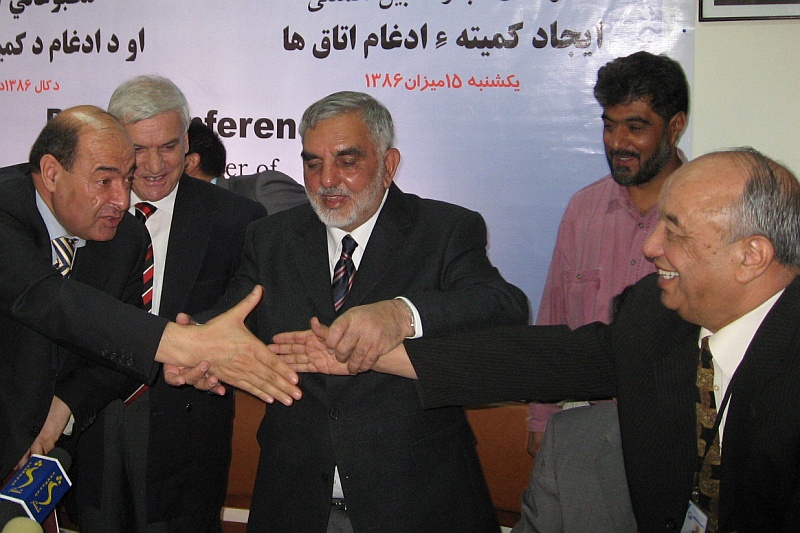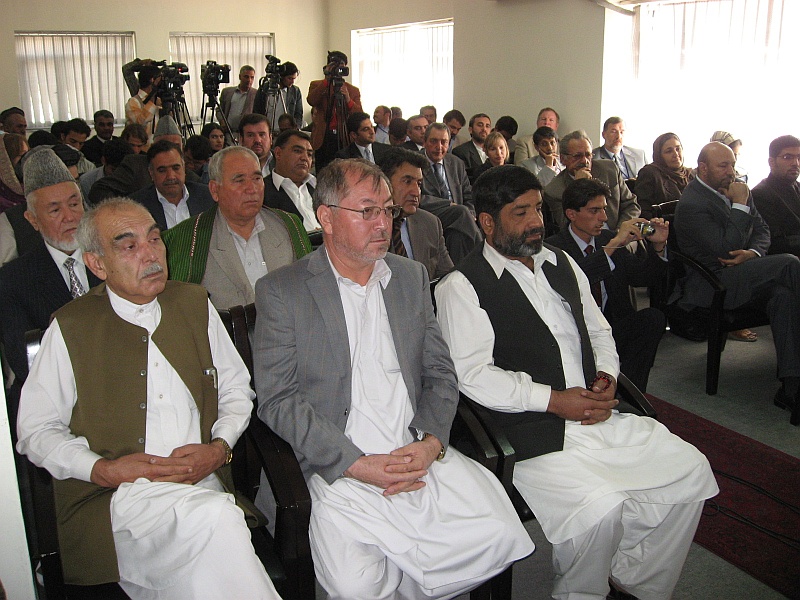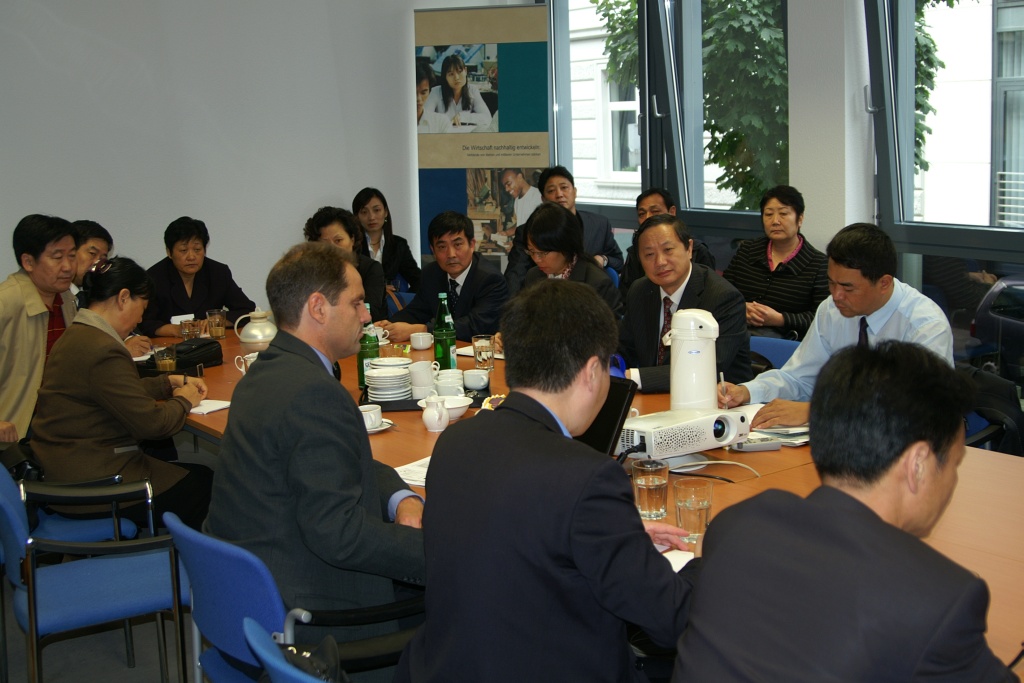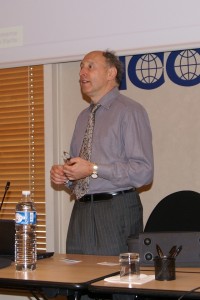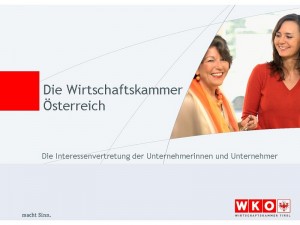Private Sector to Speak With One Voice
A joint committee of the Afghanistan Chamber of Commerce and Industry (ACCI) and the Afghanistan International Chamber of Commerce (AICC) has, in a Kabul meeting on October 7, 2007, paved way for a merger between the two organizations to form a new, stronger, and united national chamber of commerce to represent the entire private sector of the country. Their elected top leaders, President Dr. Ghulam Mohammad Yaylaqi of ACCI and Chairman Azarakhsh Hafizi of AICC, signed a joint declaration on the merger at the meeting.
Minister of Commerce and Industry Dr. Amin Farhang expressed his full support and his appreciation of a united voice for the private sector. “This will significantly speed up the economic progress of our country and reduce confusion among private entrepreneurs and traders”, he said at a press conference. “A modern, member-oriented chamber can play an important role in services for the enterprises and influence political decision-making. Of course, it also makes our life in the government easier, if we only need to talk to one partner who represents the balanced interest of the private sector.” According to Farhang, a new, liberal chamber law can now be ratified much faster than without the merger.
Two main sponsors of economic development in Afghanistan, USAID and GTZ, support the concept of the merger of the two chambers. They were represented by the Director of the Office Economic Growth, USAID, Donnie Harrington, and the Acting Head of Sustainable Economic Development Program (NaWi) of GTZ, Shafic Gawhari. More than 70 national and international journalists, leading representatives of both chambers, private entrepreneurs, politicians, and members of the international community in Kabul observed the event.
The Chairman of the recently established Chamber Merger Committee, Mahmood Karzai, brother of Afghanistan’s President Hamid Karzai, declared that the CMC will work towards ensuring that the combined chamber introduces best practices such as a democratic election process, by-laws giving power to the members, external auditor to audit accounts, and a democratic and accountable board.
He also provided further details on the decisions of the meeting. “We expect the first session of the founding assembly for the new chamber to take place as soon as November 24th. During that session, we want private sector representatives of all regions and sectors to discuss and adopt our new by-laws and to elect the new leadership. The new chamber can then start full operations before the end of the year.” Karzai had just been elected Chairman of the Committee on October 4th, with Khan Jan Alokozai and Azarakhsh Hafizi as Vice Chairmen and Mohammad Haqjo as Head of Secretariat.
Responding to a question of the Ariana TV correspondent, Chamber Reform Commission Chairman Arif Zarif explained that the restructuring of the chamber’s full-time staff organization will be a major task of the new CMC. “A socially acceptable solution for the reduction of employees must be found,” said Zarif who is also Chairman of the Economics Committee of the National Assembly, Afghanistan’s parliament.
Joint Declaration on Merger
With the objective to establish a strong and united business membership organization representing the entire private sector of Afghanistan, and to build a platform for the self-administration of the business community of Afghanistan, the leading elected organs of the Afghanistan Chamber of Commerce and Industry (ACCI) and the Afghanistan International Chamber of Commerce (AICC) have, after careful consideration and friendly negotiations and in close consultations with the Ministry of Commerce and Industry, decided to merge both organizations into one national Chamber of Commerce and Industry of Afghanistan.
Under guidance of the Chamber Reform Commission (CRC), ACCI and AICC have established a Chamber Merger Committee (CMC) to prepare and implement the merger process. The CMC is composed of seven leading representatives of ACCI, seven leading representatives of AICC, and one impartial Head of Secretariat.
The CMC has unanimously elected Mr. Mahmood Karzai as its Chairman, Mr. Khan Jan Alokozai and Mr. Azarakhsh Hafizi as its Vice Chairmen, and Mr. Mohammad Haqjo as its Head of Secretariat.
Kabul, October 7, 2007
Dr. Ghulam Mohammad Yaylaqi
President of ACCI
Azarakhsh Hafizi
Chairman of AICC
Confirmed:
Dr. Amin Farhang
Minister of Commerce and Industry
Arif Zarif
Chairman of CRC
